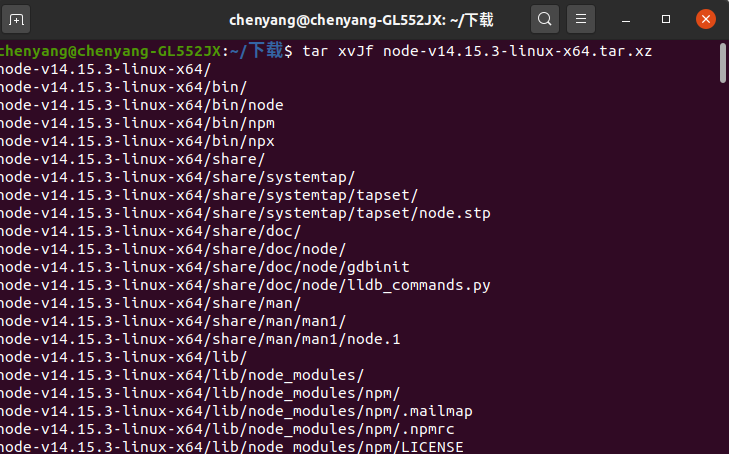

exec will execute the next command using the results of find: tar Step 2: tar Add as many -o -name "pattern" as you want. This command will look for the files you want to archive, in this case /my/path/*.sql and /my/path/*.log. If you want to have more flexibility with filenames and compression options, you can use: find /my/path/ -type f -name "*.sql" -o -name "*.log" -exec \įind /my/path/ -type f -name "*.sql" -o -name "*.log" -exec
#UN TAR XZ ARCHIVE#
z, -gzip, -gunzip, -ungzip filter the archive through pigz j, -bzip2 filter the archive through lbzip2 If you build tar from sources, then you can recompile with parameters -with-gzip=pigzĪfter recompiling tar with these options you can check the output of tar's help: $ tar -help | grep "lbzip2\|plzip\|pigz" All files compressed in multi-threaded mode meet thisĬondition, but files compressed in single-threaded mode don't even if On files that contain multiple blocks with size information inīlock headers. Threaded decompression hasn't been implemented yet. However this will not work for decompression of files that haven't alsoīeen compressed with threading enabled. Multithreaded compression and decompression are not implemented yet, so this This is a fragment of man for 5.1.0alpha version: If you are running version 5.2.0 or above of XZ Utils, you can utilize multiple cores for compression by setting -T or -threads to an appropriate value via the environmental variable XZ_DEFAULTS (e.g. $ tar -I 7zhelper.sh -xf OUTPUT_FILE.tar.7z Here the example of usage: $ tar -I 7zhelper.sh -cf OUTPUT_FILE.tar.7z paths_to_archive

p7zipįor p7zip for compression you need a small shell script like the following: #!/bin/sh You can compress using multithread version and decompress using singlethread version and vice versa. Input and output of singlethread and multithread are compatible. $ tar cf - paths_to_archive | pigz > OUTPUT_ If your replacement utility hasn't this parameter and/or you need specify additional parameters, then use pipes (add parameters if necessary): $ tar cf - paths_to_archive | pbzip2 > OUTPUT_ $ tar -use-compress-program=pigz -cf OUTPUT_ paths_to_archiveĪrchiver must accept -d. For instance: $ tar -I pbzip2 -cf OUTPUT_2 paths_to_archive Most popular multithread archivers are pigz (instead of gzip) and pbzip2 (instead of bzip2). You can use multithread version of archiver or compressor utility. tar.There is option for tar program: -I, -use-compress-program PROG What command do I need to use to extract all the files in a. Unzip: cannot find zipfile directory in one of community_ or community_.zip, and cannot find community_.ZIP, period. Note: community_ may be a plain executable, not an archive In the latter case the central directory and zipfile comment will be found on the last disk(s) of this archive. Either this file is not a zipfile, or it constitutes one disk of a multi-part archive. tar.gz file to our hosting site, but when I ssh into my directory and try using unzip, it gives me this error: locations]$ unzip community_Įnd-of-central-directory signature not found. tar.gz file from a client that contains about 800 mb of image files (when uncompressed.) Our hosting company's ftp is seriously slow, so extracting all the files locally and sending them up via ftp isn't practical.


 0 kommentar(er)
0 kommentar(er)
